 Good mind mapping examples are hard to find.
Good mind mapping examples are hard to find.
A lot are generic, computer-generated and simply don’t apply to the epic outcomes you’re looking to achieve.
Let’s put an end to this struggle right now.
On this page you’ll discover my best mind map examples.
Not only did I learn how to mind map directly from Tony Buzan himself.
I’ve also used mind mapping to help with language learning, outlining books and developing a business that has lasted well-over a decade now.
So whether it’s mind mapping for project planning or problem-solving, marketing or mindfulness, on this page, I’ve got you covered.
Ready for a ton of powerful mind map examples?
Let’s dive in!
9 Mind Mapping Examples For Producing Top Results In Your Life
As we go through these examples, keep in mind that for best results, you need to actually do some mind mapping yourself.
And that’s why the following point is very important:
If you’re anything like me, there’s only one frustration that comes with learning a new skill.
You want things to be perfect… instantly!
Seriously – who doesn’t?
Well, let me caution you that using mind mapping tends to frustrate perfectionists.
That’s why I suggest you be at least willing to drop any perfectionism you might have. Instead, focus on progressing towards becoming better.
Bring your flexibility, your willingness to “just do it,” and joyously make mistakes for the purpose of growth.
Mind mapping is not a final destination, a journey from point A to point B.
A Quick Definition Of Mind Mapping
Being willing to experiment is important because, as Tony Buzan put it, each part of your mind is like a brain cell on paper. Just as each cell has synapses, your mind maps will have multiple tributaries that radiate outwards from a central point.
It’s kind of like how rivers flow from lakes out into the oceans.
In other words, the answer to what is mind mapping is this: it is organic.
I missed this point for years and as a result created many barely useful mind maps. They were often sloppy and overloaded with way too many details, as in this example:
That was definitely not a failure because I’m not a perfectionist.
But it was going about it the wrong way because I was trying to get way too much out of a single mind map.
So my best advice is to go over these examples, and then as you create your own, just relax.
Take a deep breath. Put pen to paper. Begin with your goal and enjoy the process.
Now let’s get into the examples of what does work for great results from mind mapping well.
One: Mind Map Example For Project Planning
I mind map many of my creative projects. For example, here’s a picture of me creating a mind map for a cohort course I delivered a few years ago:
As taught by Tony Buzan in Mind Map Mastery, a key point is to have a large central image that uses at least three colors.
This central image should be inviting, one you’ll want to revisit.
You don’t have to be a great artist.
Once again, don’t overthink it!
In the case of the example above, my central image was of a person performing yoga moves for better memory and concentration.
Buzan suggests other laws that I followed and discuss in this video tutorial:
For more help and discussion of these laws, listen to my interview with Tony Buzan. It’s inspiring, insightful and I’m so glad to have been able to learn from him directly while he was alive.
Two: A Brainstorming Mind Map Example
Sometimes I don’t know exactly what I want to discuss. As a result, project planning is impossible.
But as you can see on this mind map example, I’ve followed Buzan’s rule of following a clockwise journey and wound up discovering a dozen of ideas.
Even more importantly, have a look at the arrow in the example above.
I was able to connect two ideas, quickly spotting a relationship I never would have noticed otherwise. Although this doesn’t make the mind map a concept map, it helped it serve a similar function.
There are many other brainstorming rules you can consider, but the key thing is to get started. The process itself will reveal many ideas as you get into a state of flow and ideas and relationships emerge naturally.
Three: Mind Map Example For Creative Writing
Although the “Memory Detective” novel I wrote based on the following mind map example turned out a bit differently than planned, making the mind map was essential:
In this case, each tributary touches on a particular plot point.
For example, the ghost drawing at the one o’clock position reminds me that I wanted to show what was haunting the character from his past in the very early pages of the novel.
If you study the example, you’ll see all the major plot elements mapped out, such as dilemma, battle and resolution. This is an incredibly fast and fun way to plot a story that people will love.
Four: Mind Maps For Study & Revision
Mind mapping can be used for studying, though some scientists warn that it should not be relied upon for learning facts.
I think they’re right. Mind mapping can definitely help, but it needs to follow the principles of active recall and holistic learning.
That said, if you look at the example above, I used mind mapping to successfully learn a number of German words related to cooking.
It’s just that I also followed all the other principles related to learning a new language – each of which is incredibly important.
What about note-taking? I don’t personally use mind mapping when reading books or taking courses. But one of my students does and she sent this example of how she mind mapped one of my courses.
She’s done well with accomplishing her memory improvement goals and clearly understands a variety of mnemonic strategies.
She’s also made her notes much more interesting to look at as well. So although I don’t take notes from textbooks like this at all myself, I highly encourage you to explore this kind of approach.
Five: Mind Map Example For Personal Development
One of my favorite ways to grow personally is to mind map my fears and anxieties – and then use this discovery process to identify my opportunities and strengths.
Although the mind maps don’t always look like the traditional Tony Buzan-style, they’re just as useful.
In the example above, I used a self-inquiry approach to achieve understanding about the nature of my own mind. I was working towards dealing with feelings of the unknown and am glad to report that I succeeded.
For more ways to use mind mapping for personal development, check out this tutorial where I teach you how to combine mind mapping with journaling for self improvement:
Six: Mind Map Example For Business Development
One of the best things I ever did was to mind map the Magnetic Memory Method project you’re reading right now.
Tony Buzan was with me as I did it, and I’ve been following the mind map ever since for everything from product development to simply having a reminder of my vision.
Although the images on this business mind map example might not be meaningful to you, they work for me.
And that’s that principle. You need to develop your own business development mind map so that you understand it at a glance.
When you do, it will serve you and your business outcomes incredibly well.
Seven: Mind Mapping Example For Complex Language Learning Goals
I shared the basics for memorizing vocabulary above with my German example above.
But what about Asian languages like Japanese and Chinese where you have to learn new character sets?
When I passed level III in Mandarin, I used a lot of mind mapping to deal with these complications.
In this case, I combined the Major Method and a PAO system to help.
It’s like turning your Mind Map into a clock. Allow me to explain more in this video:
I wound up with many mind maps for Mandarin that look different than what you’ve seen so far.
You’ll note that there are no colors included. Nor is there a central image.
In this particular case, I simply didn’t have time. I had only 15-30 minutes a day to study for the exam.
Normally, however, I take more time and include colors on both mind maps and flashcards for language learning.
My point in sharing this unique mind map example is that you don’t always have to follow each and every rule in order to get stellar results.
Eight: Mind Map Example For Problem-Solving
I don’t know about you, but hardly a week passes when I don’t face an issue for which I need some kind of problem-solving model.
Have a look at this example:
I was trying to solve a question for one of my students.
Within three minutes I was able to give them eight unique ways to look at a problem.
The reason I switched colors while creating this mind map was to induce the interleaving effect (if only in a manner of speaking). Although interleaving is normally only for studying, I find that taking a quick pause to change colors relaxes the mind and makes it possible to generate even more ideas.
Nine: Mind Map Example For Finding New Memory Palaces
Speaking of problem-solving, many of my Magnetic Memory Method Masterclass students ask me how to find more Memory Palaces.
In case you’re new to the technique, a Memory Palace is a mental recreation of a familiar location. Or you can use invented locations, like virtual Memory Palaces based on video games.
No matter what core location type you choose, I suggest mind mapping all of your possible choices. Like this:
This example covers all the most common places you can use to find Memory Palaces. You’ll see everything covered from movie theatres to cars and even musical instruments and your body (something used often as part of ancient memory techniques around the world).
The more ideas you have, the easier you’ll find the use of memory techniques overall.
Make A Variety Of Mind Maps As Part Of Your Holistic Performance Training
As I tried to make clear, mind mapping is best approached as part of a holistic process.
It’s a tool that opens up the mind, but not the only one. For the fullest possible results, make sure to embed mind mapping in other effective processes.
One of those I just mentioned: the Memory Palace.
If you’d like to know more about this form of learning, get my free course here:
It gives you four free video tutorials and some worksheets.
Soon you’ll be mapping your current memory and drawing a path to memory skills that are much improved. That way, you’ll not only get the benefits of mind mapping, but also the value of better recall.
So what do you say?
Are you ready to start mind mapping?
Experiment freely and soon you’ll see the power of mind mapping in many areas of your life!
Related Posts
- How To Combine Mind Mapping And Memory Palaces With Phil Chambers
Reigning World Mindmapping champion Phil Chambers joins us to talk about Mindmapping and how to…
- Tap The Mind Of A 10-Year Old Memory Palace Master
Alicia Crosby talks to us about how she memorized all of Shakespeare's plays in historical…
- 15 Secrets To Expanding Your Mind And Accessing More of Your Brain
You want to expand your mind but don't know how. These 15 secrets show you…

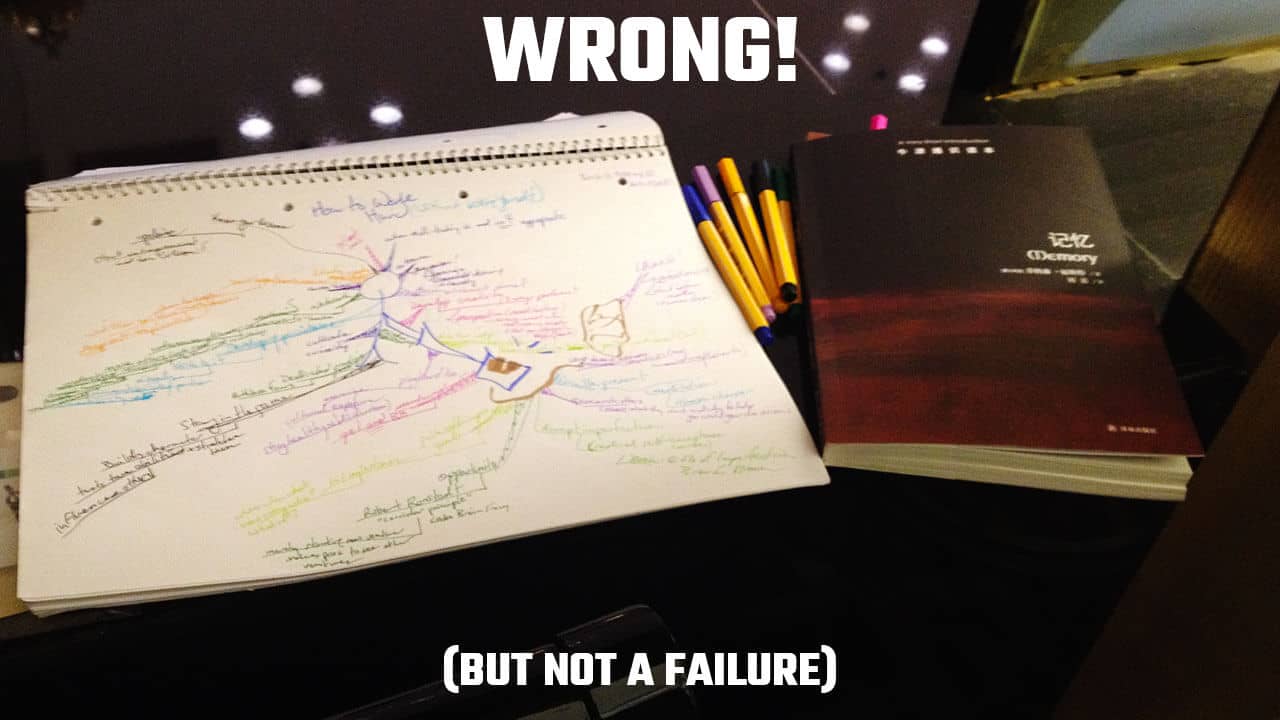

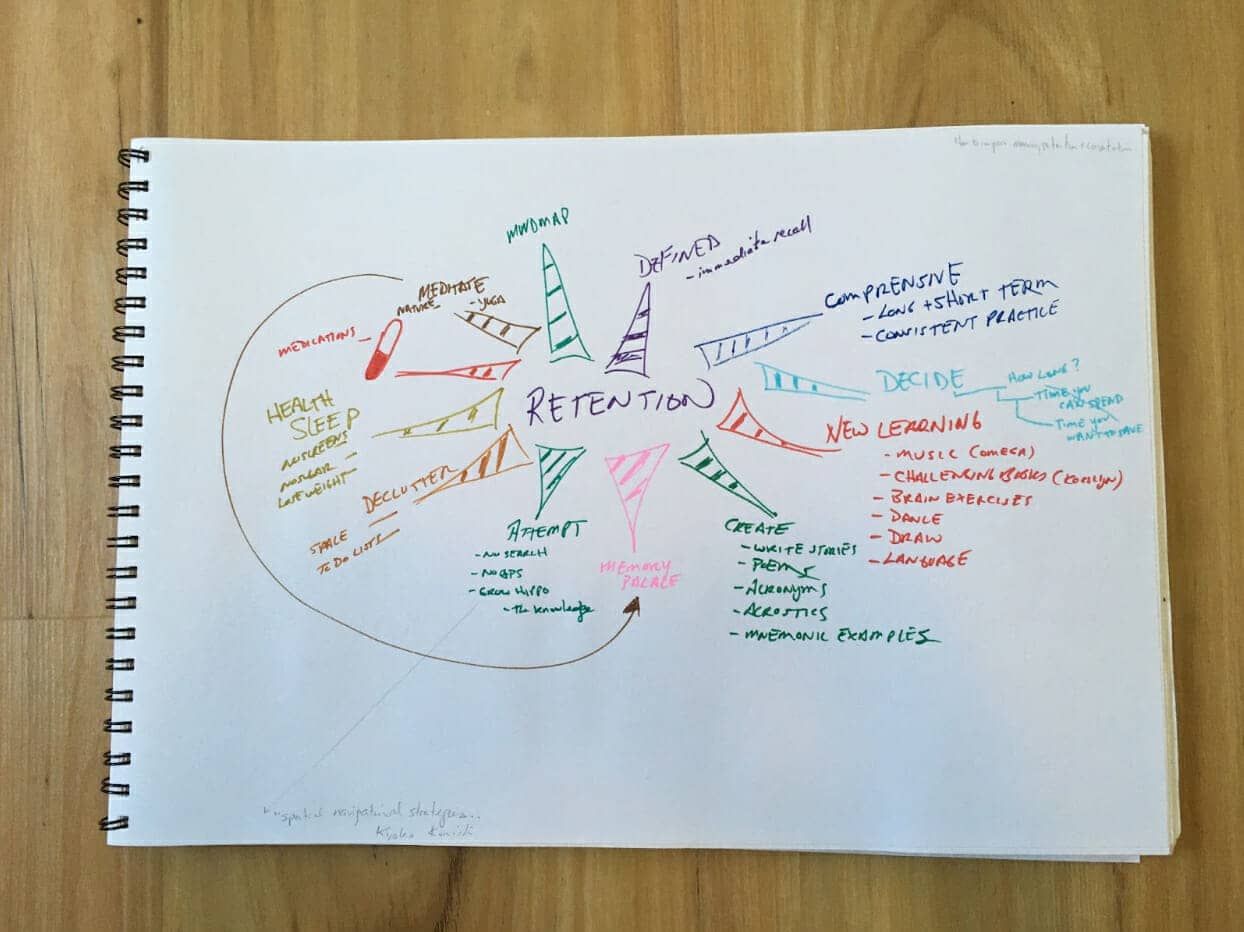
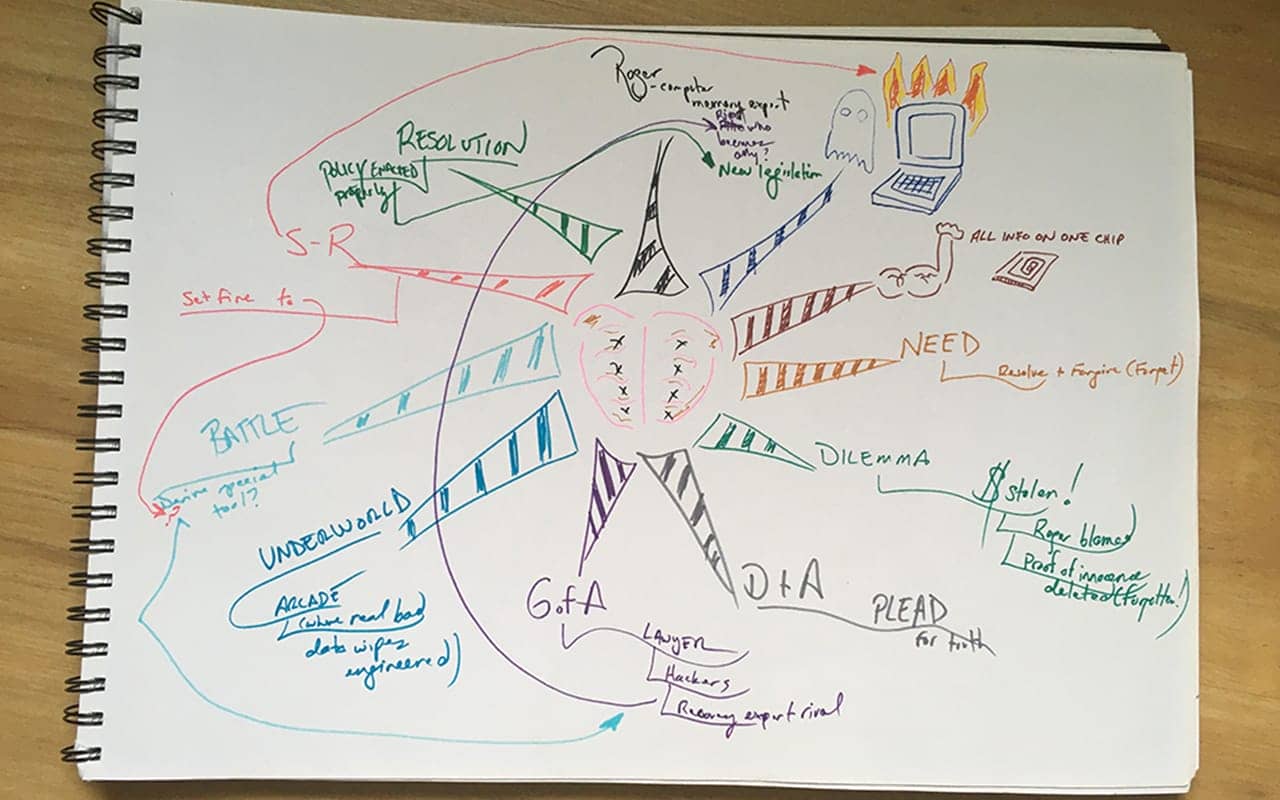
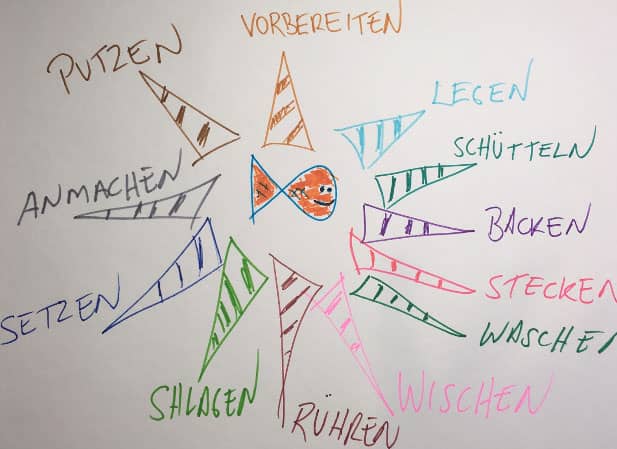
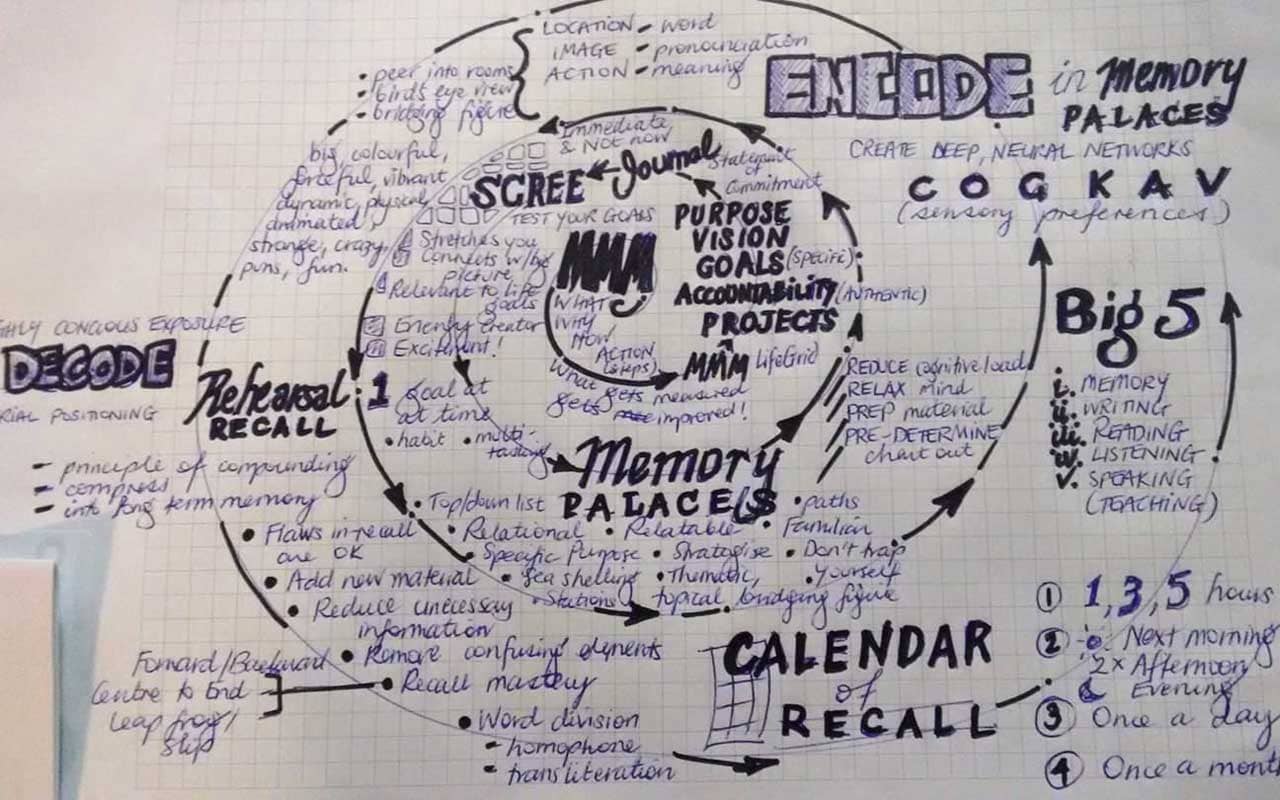

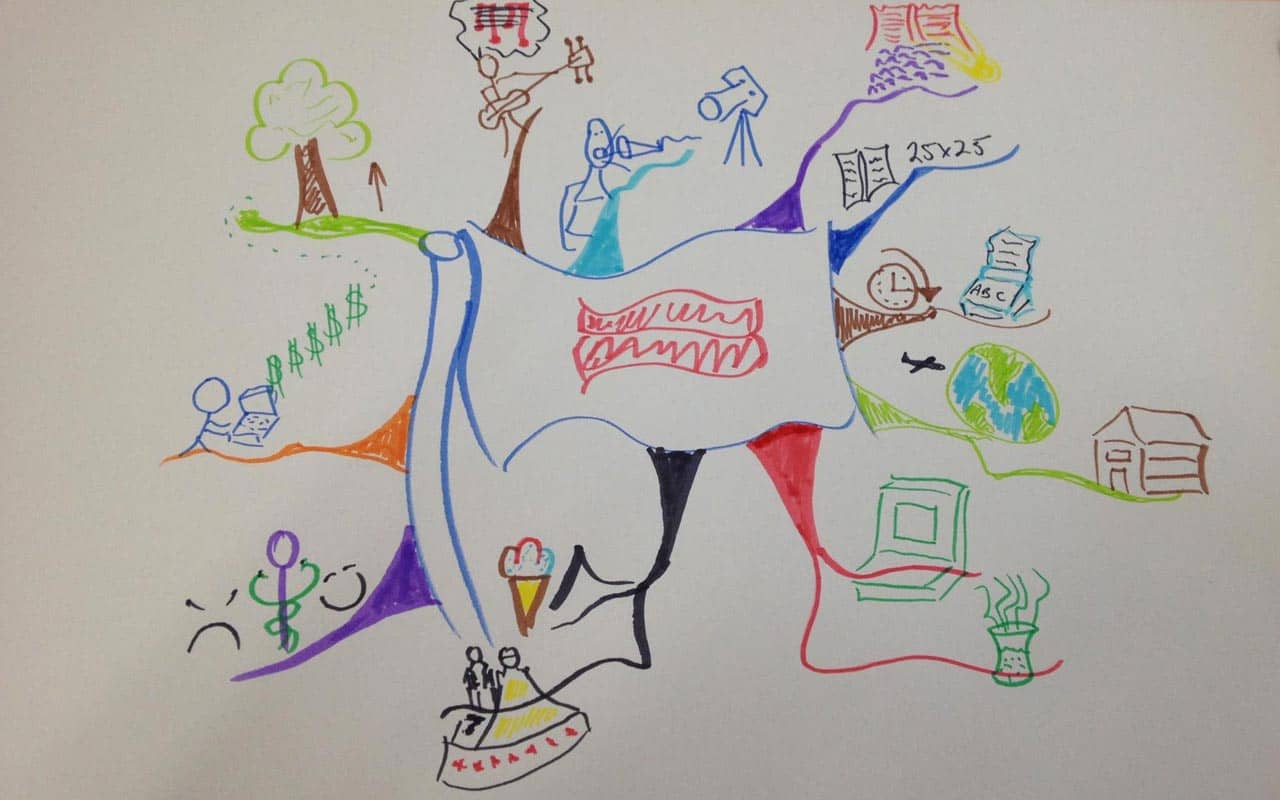
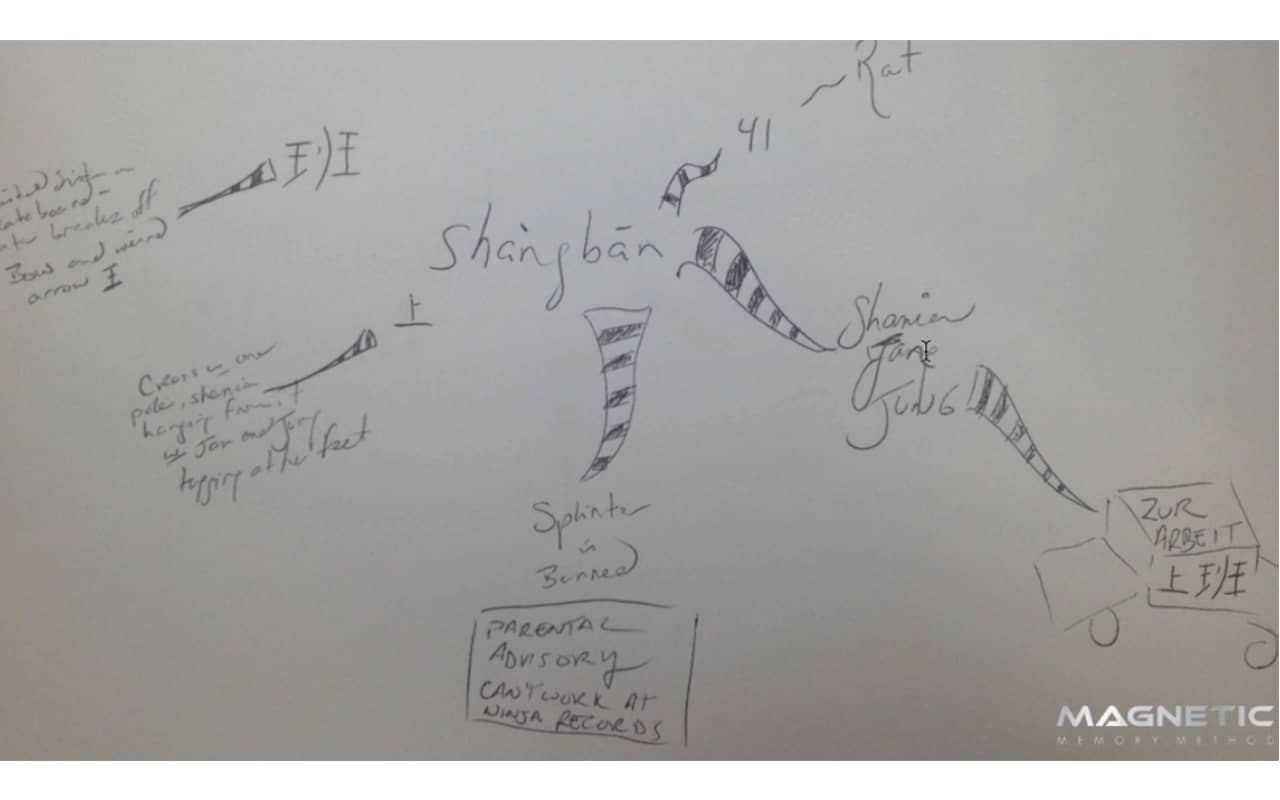
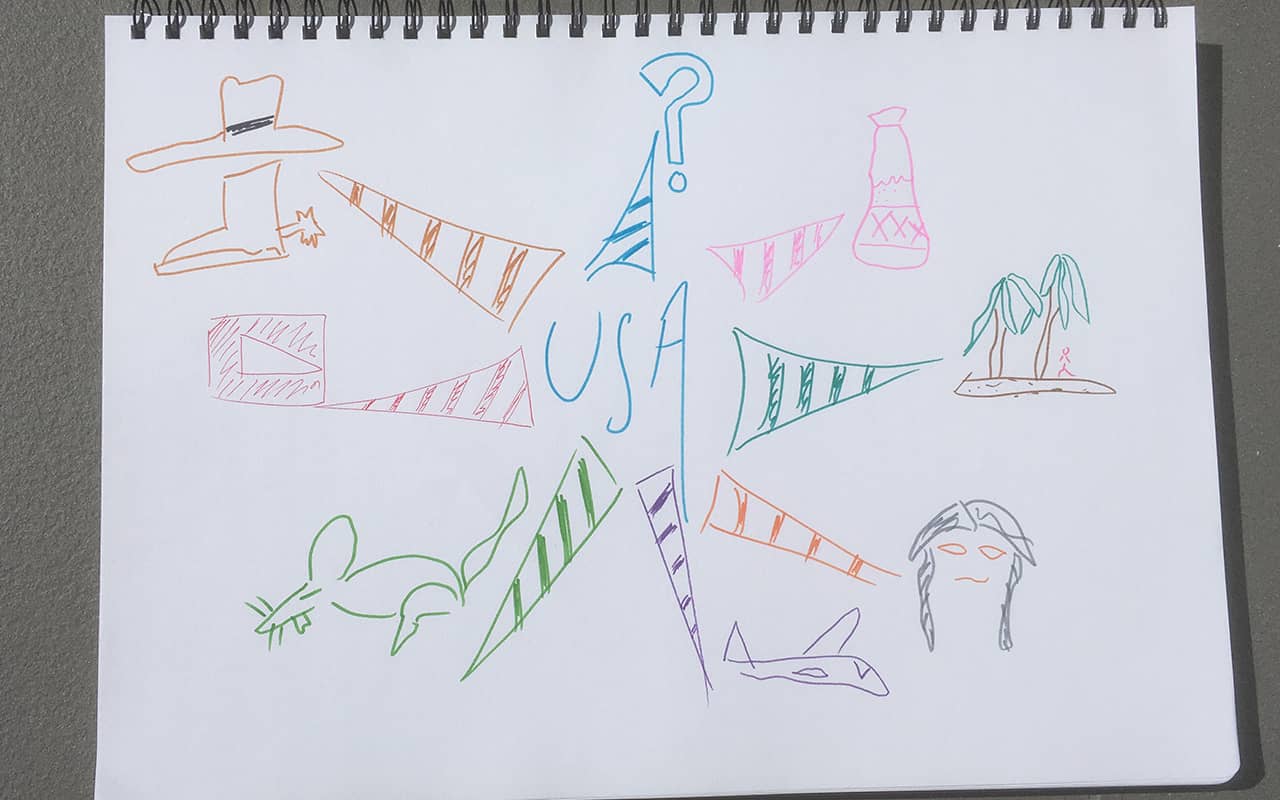
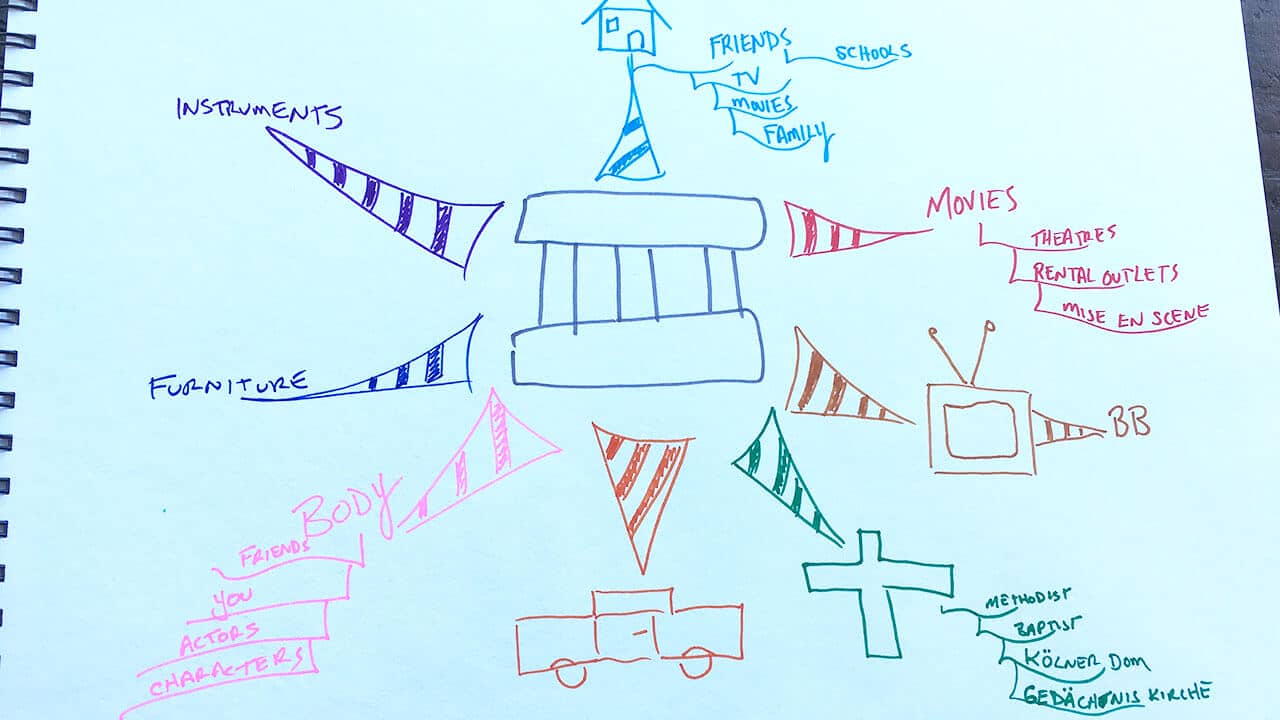




2 Responses
Hi Anthony!
For “Mind Mapping”, I just think of the spaces or the things I like.
For example: gardens, dresses, shoes, views. Then it is easy to do a “Memory Palace” using those.
If I have a lot information, I can use a flower with more petals or tree with more leaves.
It’s wonderful you can come up with all these ideas, Maricela. You have an “organic” sense of the technique and use the world around you very well as a result.
I like too how you have incorporated trees in your Memory Palace drawings, which are kind of like mind maps themselves. That has been great to see.
Thanks as always for posting and look forward to your next one!